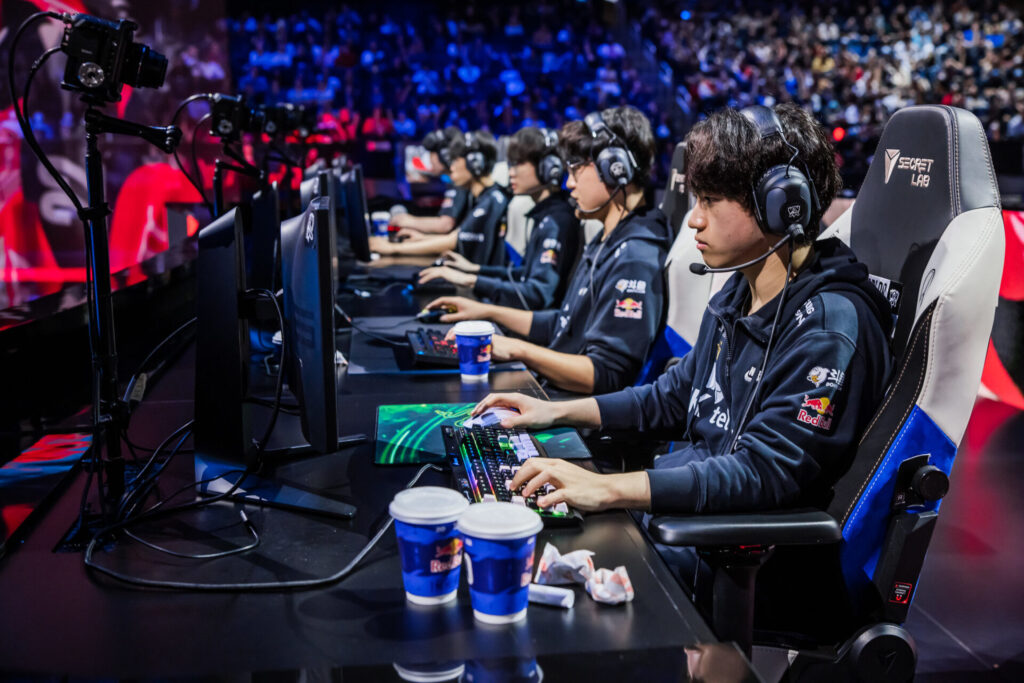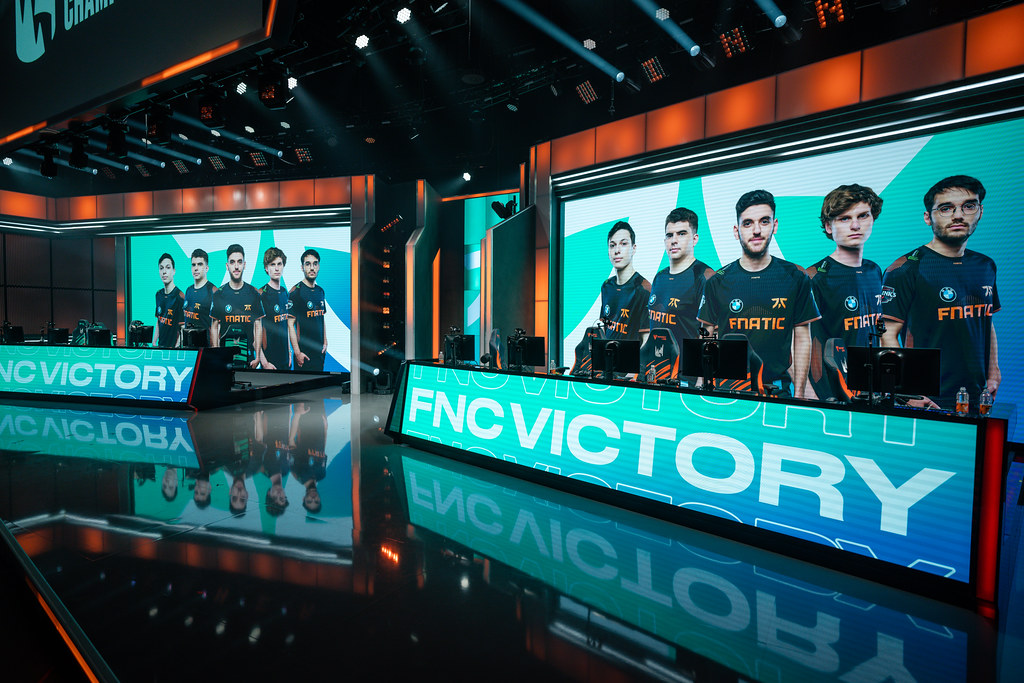Esports, or competitive video gaming, has grown tremendously in popularity in recent years. According to the market research firm Newzoo, the global esports market is expected to reach $1.61 billion by 2024, with a worldwide audience of over 600 million people. With such a large and engaged audience, it’s no surprise that brands are starting to take notice of the potential of esports as a marketing tool.
The benefits of esports for brand awareness and promotion
One of the primary benefits of esports for brands is the ability to reach a younger, tech-savvy audience. The average esports viewer is between the ages of 21 and 35. They are more likely to be early adopters of new technologies and more likely to be interested in gaming and technology-related products. By sponsoring esports teams or events, brands can increase their visibility and credibility among this valuable demographic.
Another benefit of esports for brands is the ability to collect valuable data and insights into consumer behavior. Esports events generate a large amount of data, including metrics on viewer engagement, audience demographics, and purchasing behavior. This data can be used to inform marketing strategies and improve the targeting and effectiveness of advertising campaigns.
Esports can also allow brands to create authentic and engaging content for social media and other marketing channels. Esports events and competitions can provide exciting and dynamic content, such as highlights, interviews, and behind-the-scenes footage. This content can create engaging social media campaigns and increase brand awareness.

Building brand loyalty through esports
Building brand loyalty is an essential aspect of any successful marketing strategy. It is the foundation of long-term customer relationships and can help increase customer retention and lifetime value.
Sponsoring esports teams or events is one of the most effective ways to build brand loyalty. By aligning your brand with an esports team, you can create a sense of connection and affiliation with the esports community. This can lead to increased brand loyalty among esports fans and viewers, who are likelier to choose products from brands that support the esports scene.
Additionally, brands can foster a deeper emotional connection with their audience by creating engaging and authentic content that resonates with esports fans. This emotional connection can lead to increased brand loyalty and a stronger relationship between the brand and its audience.
Brands can also use esports to build loyalty through exclusive offers and experiences. For example, brands can offer exclusive discounts or merchandise to fans of a sponsored esports team or event. They can also create memorable experiences or meet-and-greets with esports players for their loyal customers.
Another way to build brand loyalty through esports is by involving customers in the gaming experience. For example, brands can create gaming tournaments or challenges in which customers can participate and compete for prizes, thus creating a sense of community and belonging.
Esports can also build loyalty through gamification of the brand experience. By incorporating gaming elements into the customer journey, brands can make the experience fun and engaging, leading to increased loyalty and repeat business.
Incorporating esports into a brand’s marketing strategy can effectively build brand loyalty and create a deeper emotional connection with customers. By leveraging the power of esports, brands can create a loyal and engaged customer base that will continue to support their products and services for years to come.
Real-world examples of brands successfully using esports for promotion
Many examples of brands have successfully incorporated esports into their marketing strategy. For example, Intel has been a long-time sponsor of esports events, such as the Intel Extreme Masters and the Overwatch League. This sponsorship has helped to increase the brand’s visibility and credibility among esports fans and viewers.
Another example is Coca-Cola, a League of Legends World Championship, sponsor. The brand’s sponsorship has helped increase its visibility among esports fans and also helped to create authentic and engaging content for social media and other marketing channels.
Another brand that has successfully used esports for promotion is Red Bull. The energy drink brand has sponsored several esports teams, events, and tournaments which helped them to increase brand awareness and reach a wider audience. Also, Red Bull’s content strategy has been focused on creating engaging video and social media content that resonates with esports fans, which helped them to build a loyal following and a strong brand image.
Another example is the car manufacturer BMW, the official partner of the famous esports team Fnatic. BMW has been using this partnership to increase brand awareness and reach a younger audience by creating exciting content and activations around the team and its players.
“Everyone at Chillblast is excited to enter into this partnership with Fnatic. We’re obsessed with providing the highest levels of performance and service, enabling gamers to compete at the highest levels. The teams at Fnatic need to have the best quality equipment to perform at their best, and we’re eager to help them succeed in every aspect of their game.”
– Scott Brenchley, Tactus Group CEO.
“Our players know that to be able to compete at the best in-game, we need to have the best-performing systems. Chillblast will be able to offer excellent performance along with unique fantastic Fnatic team designs.”
– Sam Mathews, Fnatic CEO.
These examples demonstrate how brands can use esports as an effective tool for promotion and building brand loyalty. By aligning with esports teams, sponsoring events, and creating authentic and engaging content, brands can reach a younger and tech-savvy audience and increase brand awareness, credibility and loyalty.

Incorporating Esports into a Brand’s Marketing Strategy
Incorporating esports into a brand’s marketing strategy can be a powerful way to increase visibility, reach a younger and tech-savvy audience, and build brand loyalty. However, to be successful, it’s essential to approach it with a clear strategy and understanding of the esports landscape.
One of the first steps in incorporating esports into a brand’s marketing strategy is identifying the right teams or events to sponsor. This will depend on the brand’s target audience and marketing goals. For example, if a brand wants to reach a younger audience, it may sponsor a popular mobile game like PUBG or a team competing in a game like League of Legends.
Once a brand has identified the right esports teams or events to sponsor, it should focus on creating authentic and engaging content that resonates with esports fans. This can include making social media campaigns, creating video content, and organizing events.
Another important aspect of incorporating esports into a brand’s marketing strategy is measuring the campaign’s success. Brands should set clear goals and KPIs and use tools to track their progress, such as analytics software and social media monitoring.
It is also important to note that brands should consider the legal and regulatory aspects of sponsoring esports teams or events and ensure that they comply with all the relevant laws and regulations.
Esports has become a powerful tool for brands looking to increase visibility, reach a younger and tech-savvy audience, and build brand loyalty. By aligning with esports teams, sponsoring events, and creating authentic and engaging content, brands can effectively use esports to promote their products and services. However, brands must approach this strategy with a clear plan and understanding of the esports landscape and measure the success of their campaigns.
At Second World, we specialize in gaming and esports projects and can help your brand navigate the esports landscape and create a successful marketing strategy. Contact us today to learn more about how we can help your brand succeed in esports.
